Low doses of cannabis may fight stomach cancer and alleviate the symptoms and side effects of traditional cancer treatments. We looked into current research on the potential of THC and CBD as adjuvant therapies for stomach cancer. Get ready to discover the surprising anticancer effects of cannabis.
Experimental studies showed that the activation of cannabinoid receptors by cannabinoids is antitumorigenic in most cases, i.e., it inhibits tumor cell proliferation, induces apoptosis in vitro, and blocks angiogenesis and tumor invasion/metastasis in vivo. (Dariš, et. al.)
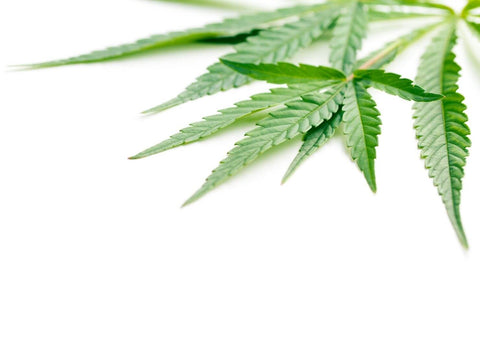
Small amounts of cannabis have more health benefits than higher doses. Whether you're looking for a natural way to fight stress and anxiety, relieve pain, or support your brain health, microdosing cannabis might be the answer.
Our collection of the best hemp-derived Delta 9 edibles is proof that quality ingredients and exceptional flavors go hand in hand. Try our low-dose Bliss gummies, with only 5 mg of THC and cannabidiol (CBD), and spice things up with the most soothing honeydew-infused gummies.
What is Stomach Cancer?
Stomach cancer, or gastric cancer, is a malignant growth that starts in the stomach lining (mucosa) in any part of the stomach. It is characterized by precancerous changes in the mucosa that often show no symptoms. Once the abnormal cells start to grow and divide uncontrollably, the condition turns into cancer.
The most common type of stomach cancer is adenocarcinoma, accounting for about 95% of cases. It develops from the gland cells in the innermost lining of the stomach. There are two main forms of adenocarcinomas:
- The intestinal type is more common in senior patients. It often develops in the stomach areas affected by chronic gastritis, peptic ulcers, or Helicobacter pylori infection. Intestinal-type adenocarcinoma is characterized by the formation of glandular structures on the mucosa. It also seems to have a slightly better prognosis.
- The diffuse type of stomach adenocarcinoma is less common and tends to spread more quickly, making it more challenging to treat. It’s characterized by the infiltration of cancer cells throughout the stomach wall. Diffuse-type typically affects younger individuals with specific genetic mutations or familial predispositions.
Symptoms of Stomach Cancer
Symptoms of stomach cancer are often hard to detect in the early stages. Even the most common indicators of gastric cancer, such as unexplained weight loss and stomach pain, usually do not appear until the cancer becomes more advanced. Many stomach cancer symptoms can be easily mistaken for other conditions, such as indigestion.
Here are some typical symptoms of gastric cancer:
- Heartburn or acid reflux
- Problems with swallowing (dysphagia)
- Indigestion (e.g. burping)
- Loss of appetite
- Losing weight without trying to
- Nausea or vomiting
- Feeling full immediately when eating
- Fatigue or weakness
- A lump at the top of the stomach
- Pain, typically above the belly button
The Development of Stomach Cancer
Just like with other types of cancer, the development and progression of stomach cancer depend on individual factors. A complex process involving genetic, environmental, and lifestyle factors (smoking, alcohol consumption, and certain occupational hazards) may influence the development of stomach cancer.
Chronic gastritis, an inflammation of the stomach lining, is frequently the first step that leads to gastric cancer. The chronic inflammation affects the stomach lining, rendering it more vulnerable to further damage and changes. If left untreated, chronic gastritis can lead to precancerous conditions such as gastric atrophy and intestinal metaplasia, which increase the risk of getting stomach cancer.
In some cases, precancerous diseases can evolve into dysplasia, or the abnormal growth and organization of cells. If this condition is left untreated, it can turn into cancerous tumors and potentially spread to nearby lymph nodes or other organs. This is the so-called metastasis, the process in which cancer cells break away from the primary tumor and travel through the bloodstream or lymphatic system to establish secondary tumors, making it more difficult to treat.
Stomach Cancer Treatment
The cancer’s location in the stomach, the stage of the disease, and the patient's overall health dictate treatment options. Most cancer treatments involve invasive and aggressive methods of killing tumor cells while also harming other organs or parts of the body.
Here are the most common treatment options for stomach cancer:
- Surgery is often the primary stomach cancer treatment. The goal of surgical intervention is to remove the tumor along with surrounding healthy tissue. The procedure may include removing a portion or the entire stomach (gastrectomy), nearby lymph nodes (lymphadenectomy), and often other affected organs if necessary.
- Chemotherapy involves the use of drugs to kill cancer cells or slow their growth. It is often combined with surgery, administered either before to shrink the tumor or after surgery to kill remaining cancer cells. For advanced metastatic stomach cancers, it can be used as a primary treatment option.
- Radiation therapy uses high-energy beams to target and destroy cancer cells. It is often used in combination with surgery or chemotherapy to improve treatment outcomes.
- Targeted therapy involves drugs that target pro-cancer molecules or pathways.
- Immunotherapy helps activate the immune system and enhance the body’s own defense mechanisms against gastric cancer.
Traditional treatments for stomach cancer have demonstrated effectiveness, but they can also be aggressive and invasive. As a result, many cancer patients are seeking more natural approaches to manage the disease and reduce side effects. Microdosing cannabis is a reliable and natural way to reap its potential benefits.
As you consume these small THC doses, your body will gradually adapt to the cannabinoid's presence, helping you improve your health without the heavy psychoactive effects typically associated with higher THC consumption. For a reliable (and delicious) introduction to the world of microdosing cannabis, we suggest you try our low-dose THC Energy edibles.
Antitumor Properties of Cannabis
In 2022, Hinz and Ramer explained the anticancer properties of cannabis and concluded that:
- In preclinical studies, THC and CBD have demonstrated potential for inhibiting tumor growth and metastasis. These compounds might act synergistically with traditional chemotherapeutic agents, enhancing their effects.
- THC and CBD could possibly work as anti-metastatic and pro-apoptotic agents in cancer therapy. They could also potentially support the immune system in its fight against tumors.
- The endocannabinoid system (ECS) could play an important role in tumor defense, making it a promising target for anticancer interventions.
Now might be a good time to read our in-depth guide to Delta-9-tetrahydrocannabinol (Delta 9 THC) and learn about its effects and benefits.
The Endocannabinoid System Against Cancer
The endocannabinoid system is a complex network of signals and receptors that are responsible for a wide range of bodily functions. It is made up of endocannabinoids, enzymes that break them down, and cannabinoid receptors.
While our bodies naturally produce endocannabinoids, phytocannabinoids found in plants like cannabis interact with our ECS in the same way. They bind to the endocannabinoid receptors and influence pain management, sleep, appetite, the immune response, and many other biochemical changes in the body. By targeting the ECS, cannabinoids seem to slow tumor growth.
Delta 9 has a similar structure to the endocannabinoids and binds strongly to cannabinoid receptors, specifically CB1 and CB2 receptors. This binding triggers cellular responses that produce diverse effects in the body. When taken at sufficient doses, Delta 9’s interaction with CB1 receptors produces the “high” traditionally associated with THC.
Low amounts of THC do not have the psychoactive effects that normally occur with smoked cannabis or other forms of consumption. That’s why our low-dose gummies are perfect for experiencing the best of what cannabis has to offer.
Find out why gummies are the healthiest way to microdose cannabis.
Many of our CBD products contain low doses of THC. That’s why our sumptuous Euphoria gummies are going to change your life. Ten milligrams of Delta 9 are paired with ten milligrams of CBD to give you a mild euphoric experience while relieving pain and anxiety. Find out why the effects of THC and CBD make such a good combo.
Cannabis Induces Cancer Cell Apoptosis
Inducing cancer cell apoptosis is a vital way of fighting cancer. Apoptosis is a process of programmed cell death. It involves a series of biochemical events that change the cell's morphology (shape and structure), leading cells to self-destruct.
Cancer cells often have mechanisms to avoid apoptosis, allowing them to grow and spread uncontrollably. A 2005 study found that a synthetic cannabinoid can reduce the amount of phosphorylated BAD protein, which is linked to cancer cell survival pathways. The results showed that “the increase of proapoptotic Bad activity is an important link between the inhibition of survival pathways and an onset of execution phase of cannabinoid-induced glioma cell death.”
Translation: cannabis may remove the ability of cancer cells to avoid apoptosis.
Another study (this time on oral cancer) found that CBD has a cytotoxic and pro-apoptotic effect on cancer cells. CBD seems to lower the resistance of cancer cells to treatment and even change their morphological characteristics to hinder their growth.
…CBD has a cytotoxic effect on cell viability and induces cell apoptosis. CBD also increases cytotoxicity on cell survival and the migration of oral cancer cells, so it may be a therapeutic drug for oral cancer. (Huang, et. al.)
The Anti-Proliferative Effect of Cannabis
Cancer cell proliferation is the rapid growth of cancer cells that leads to the formation of tumors. In studies, small amounts of cannabis, specifically the combination of THC and CBD, were shown to inhibit lung cancer cell proliferation.
In the U251 and SF126 glioblastoma cell lines, Delta(9)-THC and cannabidiol acted synergistically to inhibit cell proliferation. The treatment of glioblastoma cells with both compounds led to significant modulations of the cell cycle and induction of reactive oxygen species and apoptosis. (Marcu, et. al.)
Anti-Metastatic THC and CBD
Metastasis is the process by which cancer cells migrate from the main tumor to other parts of the body. Cannabis seems to reduce metastasis by impeding cancer cell invasion and migration.
According to Preet, et. al., “THC was able to inhibit tumor growth and lung metastases in a murine model of lung cancer.”
“Other in vivo studies demonstrated that treatment with CBD reduced colon cancer cell proliferation, induced apoptosis, and also had anti-metastatic and anti-angiogenesis effects.” (Honarmand, et. al.)
Can Microdosing Cannabis Help Fight Stomach Cancer?
Clinical studies have shown that cannabis may slow cancer cell growth, prevent proliferation, and induce apoptosis in gastric cancer cells. One study looked at the effects of CBD in particular and discovered that it induces cell cycle arrest and cell apoptosis in human gastric cancer.
Preliminary experiments have shown that CBD can significantly inhibit the proliferation and induce apoptosis in SGC-7901 cells, suggesting that CBD may be a potential chemotherapeutic drug for gastric cancer.
Cell cycle arrest is a crucial process that prevents the abnormal proliferation of tumor cells. The goal of many anticancer treatments is to cause cell cycle arrest and apoptosis in cancer cells, which helps reduce the size and spread of tumors.
A 2019 study proposes that CBD may be able to suppress a protein called X-linked inhibitor of apoptosis (XIAP), which is involved in preventing cell death in stomach cancer. At the same time, CBD seems to boost the presence of a different protein called Smac, which inhibits XIAP. Researchers found that “the expression of Smac, a known inhibitor of XIAP, was found to be elevated during CBD treatment.”
When it comes to Delta 9 THC, there haven't been extensive clinical studies focusing on its effects on stomach cancer. Based on what we know about its antitumor properties more generally, we can assume Delta 9 may possibly improve stomach cancer outcomes.
THC can induce apoptosis in cancer cells and prevent cancer cell proliferation and metastasis. Research shows that Delta 9 THC may help manage chemotherapy-induced nausea, vomiting, and pain, improving cancer patients’ quality of life.
Our fellow canna-enthusiasts are in LOVE with our amazing Euphoria gummies infused with berries. Maybe it’s the flavor; maybe it's the combination of THC and CBD, carefully balanced to provide an array of benefits. Or perhaps it's the way they elevate the everyday wellness routine.
Product QUIZ
Need help deciding what product is best for you? Take our quiz, just three questions until your perfect match!
THC and CBD For Chemo Side Effects
CBD and THC may be two distinct compounds from the cannabis plant with different impacts on the ECS, but when it comes to alleviating the side effects of chemotherapy, THC and CBD show similar medicinal effects. We’ve mentioned that the combination of THC and CBD produces greater therapeutic effects than each cannabinoid in isolation. There’s actual science behind this synergistic interaction. It’s called the entourage effect.
In the entourage effect, cannabis compounds work together to produce enhanced therapeutic effects. Through mechanisms that are still being researched, compounds derived from cannabis plants appear to act synergistically with each other. CBD heightens the effects of THC, and vice versa. Some people don’t believe that the entourage effect is a real thing, but evidence in its favor is piling up.
…CBD displays an entourage effect (the mechanism by which non-psychoactive compounds present in cannabis modulate the overall effects of the plant), and is capable of improving tolerability and perhaps also the safety of THC by reducing the likelihood of psychoactive effects and antagonizing several other adverse effects of THC (sedation, tachycardia, and anxiety). (Vučković, et. al.)
Research also indicates that the entourage effect has potential therapeutic applications in treating peripheral neuropathic pain associated with chemotherapy. According to a 2017 study, “CBD may be potent and effective at preventing the development of chemotherapy‐induced peripheral neuropathy, and its clinical use may be enhanced by co‐administration of low doses of THC.”
A 2018 study looked into the effects of cannabis on 2,970 cancer patients and found that an overwhelming 96% reported an improvement in chemotherapy-related side effects after regular low-dose cannabis use. The study concludes that THC and CBD may be used as adjunct treatments in palliative care to help cancer patients cope with symptoms related to their illness.
Here’s how microdosing cannabis can help alleviate chemotherapy-induced side effects.
- Chemotherapy drugs often cause nausea and vomiting. THC is known to have antiemetic properties and helps reduce these symptoms. Parker, et. al. suggested that “cannabinoids, including CBD, may be effective clinically for treating both nausea and vomiting produced by chemotherapy or other therapeutic treatments.”
- CBD and THC have analgesic properties. They interact with the body's endocannabinoid system to help manage pain. Research suggests cannabis might be an effective way to relieve chronic neuropathic pain, arthritis pain, and cancer pain. CBD is particularly effective in reducing inflammation, which can be beneficial for managing the inflammatory pain associated with chemotherapy.
- Sleep disturbances are common in chemotherapy patients. Both CBD and THC can help improve sleep quality.
- A common side effect of chemotherapy is a loss of appetite, which can lead to unwanted weight loss, malnutrition, and weakened bodily functions. Delta 9 THC has been used for medical purposes to stimulate appetite and help cancer patients maintain their weight during chemotherapy. It interacts with the body's endocannabinoid system to induce feelings of hunger and make food more appealing.
- Dealing with cancer and chemotherapy can cause significant mental distress. Cannabis can help manage anxiety and depression due to its interaction with serotonin receptors in the brain. According to research, low doses of THC seem to successfully decrease anxiety without psychoactive effects, whereas higher doses of THC can amplify it.
The effects of cannabis can vary greatly from person to person. If you’re a beginner at microdosing, start by taking lower amounts—around 2 mg per gummy—and work your way up. For more experienced users, 5 mg of THC is a good place to start.
Cannabis gummies typically take between 30 and 120 minutes to kick in, which is much slower than other consumption methods. However, gummies offer more sustainable and longer-lasting effects. That’s why they’re everyone’s new favorite way of consuming cannabis.
Order our Relax Plus gummies to experience a new dimension of tranquility in your life. These easy-to-dose edibles provide the perfect balance of Delta 9 and CBD that work together to regulate mood, manage stress, and promote restful sleep.
Benefits of Microdosing Cannabis
The practice of microdosing is becoming increasingly popular because it provides relief from a range of health conditions with no side effects. Here’s why you should start taking small amounts of cannabis today.
- Chronic inflammation of the digestive tract is one of the main causes of irritable bowel syndrome (IBS) and Crohn’s disease. Microdosing cannabis can help manage symptoms by reducing inflammation and promoting gut health.
- Parkinson's disease is a neurodegenerative disorder that causes tremors and movement difficulties. Microdosing cannabis may help alleviate symptoms of Parkinson’s and improve quality of life by supporting neurotransmitter function.
- Microdosing cannabis can help reduce the frequency and severity of migraines.
- Low doses of cannabis may support neurogenesis, slow cognitive decline, and offer neuroprotective benefits to people diagnosed with dementia and Alzheimer’s disease.
- Taking small amounts of THC and CBD can help regulate mood, reduce anxiety, and provide a sense of calm without the risk of significant psychoactive effects. This helps alleviate symptoms of depression and many psychiatric disorders.
- Posttraumatic stress disorder (PTSD) is characterized by intrusive memories and increased anxiety. Taking low doses of cannabis can provide relief from PTSD-related symptoms by promoting relaxation, improving sleep quality, and lowering anxiety.
Microdosing Cannabis FAQ
What form of cannabis is best for cancer?
According to the American Cancer Society, the best form of cannabis for cancer depends on the patient's specific symptoms, diagnosis, and overall health. Some people with advanced cancer could benefit the most from medical cannabis products like full-spectrum CBD gummies or other cannabis sativa extracts that contain CBD, THC, and other beneficial cannabis compounds.
We think edibles are the tastiest, safest, and easiest way to get your daily dose of THC without the potential risks associated with other methods. With a variety of flavors and potencies available, edibles offer a discreet, controlled, and enjoyable cannabis experience. Choose your favorite Delta 9 edible right here.
What cannabis is best for stomach pain?
CBD seems to give the best results for soothing stomach pain and reducing inflammation. Consuming full-spectrum CBD products, like CBD gummies or oils, can be beneficial for managing stomach pain. These products may work by interacting with proteins expressed in our endocannabinoid system, including those involved in pain perception.
Does eating raw cannabis have health benefits?
Eating raw cannabis can have health benefits, especially as it contains cannabinoids in their acid form, like THCA and CBDA, which have unique health properties. These include anti-inflammatory and neuroprotective effects. These raw forms won't produce the "high" associated with heated or aged cannabis products.
Is cannabis a superfood?
Cannabis can be considered a superfood because of its rich nutritional profile. It contains essential fatty acids, vitamins, minerals, and antioxidants. Raw cannabis, especially hemp seeds, is also a complete protein source, meaning it contains all the essential amino acids.
Why is cannabis good for your skin?
Cannabis, especially CBD-infused products, can benefit the skin in several ways. CBD has anti-inflammatory, antioxidant, and sebum-regulating properties that can help manage various skin conditions, including acne and eczema, and even help fight skin cancer.
Do edibles show up in a drug test?
THC and CBD products can cause positive test results. Delta 9 THC can be detected by a drug test for several days after consumption. The chemicals absorbed from the cannabis edibles may be lower than with inhaled cannabis. The length of detection depends on the type of test.
Urine drug tests show traces of cannabis from 1-5 days ago. This method is mostly used to detect THC. Using a hair drug test, the effects of cannabis can show up in your system for up to 90 days.
Other factors should also be taken into consideration, like:
- The potency of THC in the edibles
- The user's metabolism and cannabis tolerance
- The user's level of hydration
- The frequency of usage
Is cannabis legal?
Delta 9 is legal on a federal level in the US. Under the 2018 Farm Bill, Delta 9 must be derived from hemp, and the THC content cannot exceed 0.3% by dry weight.
However, the legality of hemp-derived products is determined by each state individually. For example, Delta 8 THC is legal on a federal level, which also makes our Delta 8 products federally legal. However, a number of US states still ban Delta 8 outright.
Here’s where you can find more information on Delta 8 THC.
All our Delta 9 THC edibles are legal in compliance with the Farm Bill. To make sure they are legal in your state, read up on our state-by-state guide to Delta 9 legality.
Resources
Dariš, B., Verboten, M. T., Knez, E., & Ferk, P. (n.d.). Cannabinoids in cancer treatment: Therapeutic potential and legislation. PubMed Central (PMC). https://doi.org/10.17305/bjbms.2018.3532
Hinz, B., & Ramer, R. (2022, March 11). Cannabinoids as anticancer drugs: current status of preclinical research - British Journal of Cancer. Nature. https://doi.org/10.1038/s41416-022-01727-4
Vučković, S., Srebro, D., Vujović, K. S., Vučetić, E., & Prostran, M. (2018, October 15). Cannabinoids and Pain: New Insights From Old Molecules. Frontiers. https://doi.org/10.3389/fphar.2018.01259
Ellert-Miklaszewska, A., Kaminska, B., & Konarska, L. (2005, January). Cannabinoids down-regulate PI3K/Akt and Erk signalling pathways and activate proapoptotic function of Bad protein. Cellular Signalling, 17(1), 25–37. https://doi.org/10.1016/j.cellsig.2004.05.011
Real-Time Monitoring of the Cytotoxic and Antimetastatic Properties of Cannabidiol in Human Oral Squamous Cell Carcinoma Cells Using Electric Cell-Substrate Impedance Sensing - PubMed. (2022, December 13). PubMed. https://doi.org/10.3390/ijms232415842
Cannabidiol enhances the inhibitory effects of delta9-tetrahydrocannabinol on human glioblastoma cell proliferation and survival - PubMed. (2010, January 1). PubMed. https://doi.org/10.1158/1535-7163.MCT-09-0407
Cannabidiol enhances the inhibitory effects of delta9-tetrahydrocannabinol on human glioblastoma cell proliferation and survival - PubMed. (2010, January 1). PubMed. https://doi.org/10.1158/1535-7163.MCT-09-0407
Delta9-Tetrahydrocannabinol inhibits epithelial growth factor-induced lung cancer cell migration in vitro as well as its growth and metastasis in vivo - PubMed. (2008, January 10). PubMed. https://doi.org/10.1038/sj.onc.1210641
Honarmand, M., Namazi, F., Mohammadi, A., & Nazifi, S. (2018, August 27). Can cannabidiol inhibit angiogenesis in colon cancer? - Comparative Clinical Pathology. SpringerLink. https://doi.org/10.1007/s00580-018-2810-6
Zhang, X., Qin, Y., Pan, Z., Li, M., Liu, X., Chen, X., Qu, G., Zhou, L., Xu, M., Zheng, Q., & Li, D. (2019, July 25). Cannabidiol Induces Cell Cycle Arrest and Cell Apoptosis in Human Gastric Cancer SGC-7901 Cells. PubMed Central (PMC). https://doi.org/10.3390/biom9080302
Jeong, S., Jo, M. J., Yun, H. K., Kim, D. Y., Kim, B. R., Kim, J. L., Park, S. H., Na, Y. J., Jeong, Y. A., Kim, B. G., Ashktorab, H., Smoot, D. T., Heo, J. Y., Han, J., Lee, S. I., Kim, H. D., Kim, D. H., Oh, S. C., & Lee, D. H. (2019, November 7). Cannabidiol promotes apoptosis via regulation of XIAP/Smac in gastric cancer - Cell Death & Disease. Nature. https://doi.org/10.1038/s41419-019-2001-7
King, K. M., Myers, A. M., Soroka‐Monzo, A. J., Tuma, R. F., Tallarida, R. J., Walker, E. A., & Ward, S. J. (2017, July 27). Single and combined effects of Δ9‐tetrahydrocannabinol and cannabidiol in a mouse model of chemotherapy‐induced neuropathic pain. PubMed Central (PMC). https://doi.org/10.1111/bph.13887
Prospective analysis of safety and efficacy of medical cannabis in large unselected population of patients with cancer - PubMed. (2018, March 1). PubMed. https://doi.org/10.1016/j.ejim.2018.01.023
Parker, L. A., Rock, E. M., & Limebeer, C. L. (n.d.). Regulation of nausea and vomiting by cannabinoids. PubMed Central (PMC). https://doi.org/10.1111/j.1476-5381.2010.01176.x
Parker, L. A., Rock, E. M., & Limebeer, C. L. (n.d.). Regulation of nausea and vomiting by cannabinoids. PubMed Central (PMC). https://doi.org/10.1111/j.1476-5381.2010.01176.x
Medical Marijuana for Treatment of Chronic Pain and Other Medical and Psychiatric Problems: A Clinical Review - PubMed. (2015, June 1). PubMed. https://doi.org/10.1001/jama.2015.6199
Stoner SA. Effects of Marijuana on Mental Health: Anxiety Disorders. Alcohol & Drug Abuse Institute, University of Washington, June 2017. URL: http://adai.uw.edu/pubs/pdf/2017mjanxiety.pdf.
Marijuana and Cancer | Cannabinoid Drugs. (2022, August 3). Marijuana and Cancer | Cannabinoid Drugs. https://www.cancer.org/cancer/managing-cancer/treatment-types/complementary-and-integrative-medicine/marijuana-and-cancer.html
nama CBD FDA & Legal Disclaimer
Our products are not intended to diagnose, treat, cure, or prevent any disease. They are not a replacement for prescription medications and have not been evaluated by the Food and Drug Administration (FDA).
The information provided on this website does not, and is not intended to, constitute legal advice or any statements of the status of any laws. Any information, content, and materials available on this site are for general informational purposes only, and are not intended to be relied upon for any purpose.
Readers of this website should contact their attorney to obtain advice with respect to any particular legal matter including decisions on what products are, or are not, legal to sell, possess, or consume. No reader, user, or browser of this site should act or refrain from acting on the basis of information on this site without first seeking legal advice from their own counsel in the relevant jurisdiction.
Only your individual attorney can provide assurances that the information contained herein – and your interpretation of it – is applicable or accurate for your particular situation. Use of, and access to, this website or any of the links or resources contained within the site do not create an attorney-client relationship between the reader, user, or browser, and website authors, contributors, contributing law firms, or committee members and their respective employers.
More articles
About
Learn
Join us on this journey

© Copyright 2025 nama Products LLC. All Rights Reserved.
†These statements have not been evaluated by the Food and Drug Administration. These products are not intended to diagnose, treat, cure or prevent any disease. All information presented here is not meant as a substitute for or alternative to information from health care practitioners. Please consult your health care professional about potential interactions or other possible complications before using any product.
††The information provided on this website does not, and is not intended to, constitute legal advice or any statements of the status of any laws. Any information, content, and materials available on this site are for general entertainment purposes only, and are not intended to be relied upon for any purpose.
123 John Doe Street
Your Town, YT 12345
Store Hours
Sun: Closed
Mon-Fri: 9:00 - 17:00
Sat: 10:00 - 13:00
What to expect at pickup
Closed
Closing at 5pm
Closing at 5pm
Closing at 5pm
Closing at 5pm
Closing at 5pm
Closing at 1pm





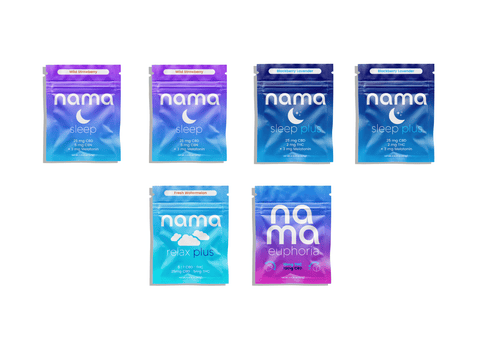

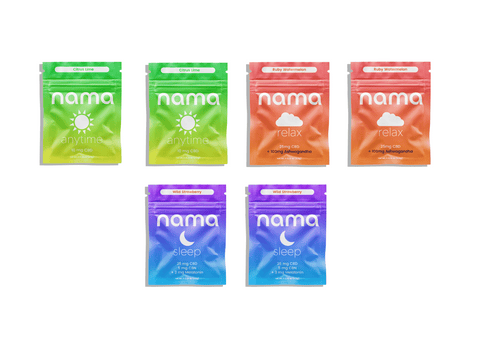
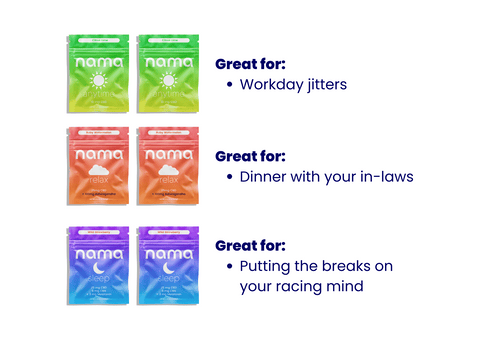
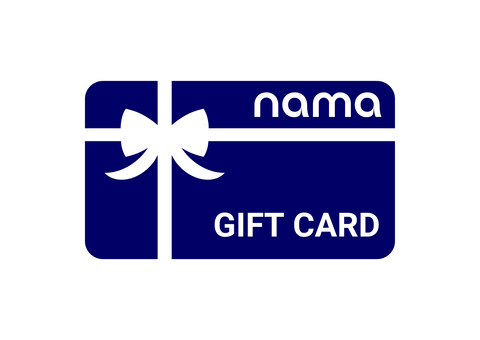







![Buzz Packs™ [THC and CBD Powder Drink Mix]](http://www.namacbd.com/cdn/shop/files/nama_buzz_packs_thc_drink_pack_white_background.png?v=1741884660&width=480)
![Buzz Packs™ [THC and CBD Powder Drink Mix]](http://www.namacbd.com/cdn/shop/files/Buzz_Packs_Label.png?v=1741884660&width=480)


![Buzz Drops™ [THC Drink Drops]](http://www.namacbd.com/cdn/shop/files/nama_thc_buzz_drops.png?v=1711412866&width=480)
![Buzz Drops™ [THC Drink Drops]](http://www.namacbd.com/cdn/shop/files/buzz-drop-wine-comparison.png?v=1736882023&width=480)






Comments (0)
There are no comments for this article. Be the first one to leave a message!